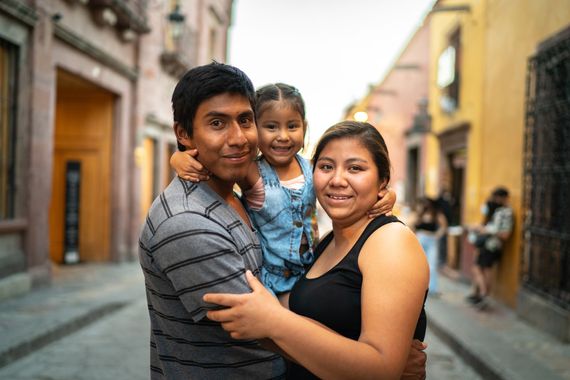Impact at Scale
Our Policy Work

Anchors List
Policy change is the most impactful solution to address hunger
Project Bread understands that hunger can't be solved through stop-gap measures. Instead, our work seeks to provide sustainable, scalable solutions that permanently move the needle on ending hunger.
Our State Policy Priorities
Current Initiatives
-
01.
Increase Access to Fresh Produce
Launched in 2017, the Healthy Incentives Program (HIP) allows SNAP recipients to purchase fresh fruits and vegetables directly from farmers. Since their launch, SNAP families have purchased more than $81 million in fresh, healthy, local foods. An Act Relative to an Agricultural Healthy Incentives Program (H222/S104) would create a permanent program to ensure the program’s long-term sustainability. Project Bread has joined the Campaign for HIP Funding Coalition to advocate for this essential program’s permanency.
Learn More
-
02.
Hunger-Free College Campuses
According to the most recent data, 37% of public university students in Massachusetts experience food insecurity. Project Bread has joined the Hunger-Free College Campus Coalition to support An Act Establishing the Massachusetts Hunger-Free Campus Initiative (H1466/S939) which would provide capacity, guidance, and funding to public colleges and not-for-profit institutions of higher education take steps to alleviate food insecurity on campus.
Learn More
-
03.
Replacing Stolen Nutrition Benefits
Nutrition benefits such as those the Supplemental Nutrition Assistance Program (SNAP) are issued through electronic benefits transfer (EBT) cards. While these EBT cards are designed to look and operate much like a debit card, they lack many of the recent security innovations adopted by major credit and debit card companies. These vulnerabilities have left EBT cards susceptible to theft through a method known as skimming.
Learn More
-
04.
Improve the Experience of Individuals Seeking Support
Starting 2020, the Supplemental Nutrition Assistance Program (SNAP) caseload increased significantly in Massachusetts. By design, SNAP grows when the need grows and shrinks as the economy and employment improve. Unfortunately, the same is not true for the hardworking staff and IT resources needed by the Department of Transitional Assistance (DTA) to manage increased applicants applying for the program. DTA now lacks the staff and infrastructure to keep up with demand, including ensuring applicants complete the phone interview required before benefits are issued. Roughly half of recent SNAP applications are denied for lack of an interview or paperwork challenges.
Learn More
-
05.
Establish Basic Needs Assistance for Immigrants
Thousands of legally present immigrants in Massachusetts – including Dreamers, TPS holders, refugees, and survivors of violence – are excluded from SNAP and cash assistance solely due to their immigration status. This bill would restore state-funded basic needs benefits for immigrant households excluded under federal rules, renewing a program Massachusetts previously operated from 1997 to 2002. Project Bread is a member of the Feeding Our Neighbors Coalition, which successfully secured temporary state-funded SNAP in 2023 and now advocates for permanent support to protect immigrant families from hunger and economic instability.
Learn More
-
06.
Endorsed Bills
These are additional pieces of legislation that Project Bread supports through coalition work!
Learn More
-
07.
State Budget Priorities for Fiscal Year 2026
In addition to our legislative agenda, Project Bread identifies priorities for the annual state budget. Budgets are moral documents and how the state spends its resources tells us a story about what programs, policies, and people are being uplifted through investments.
Learn More
The Latest
Why cuts to SNAP put families at risk
When Janin Otero, a Project Bread Council of Experts member, thinks about the cuts to SNAP (formerly known as food stamps), she has just two words: “Total devastation.” At Project Bread, we believe no one should have to choose between paying rent and buying groceries — but that is precisely the harsh reality that families like Otero’s face every day.
Our Federal Policy Priorities
Current Initiatives
-
01.
2025 Farm Bill
Every five years, federal lawmakers pass a Farm Bill. The last Farm Bill was passed in 2018 and expires this September. It includes funding for critical anti-hunger programs, including SNAP. Utilizing our direct experience with SNAP, Project Bread has drafted a series of 2023 Farm Bill recommendations for policymakers that center on protecting and strengthening SNAP.
Our Recommendations
Action Center
Your Representatives need to hear from you! Urge them to support key policies and preserve or expand critical programs to ensure everyone in Massachusetts has enough to eat.

Stay Informed
Join the Action Team
Our success comes from our engaged supporters. Sign up to receive action alerts to impact change and hunger policy updates to stay informed, including our biweekly news round-up, The Hunger Advocate.
Sign upA COORDINATED EFFORT
Make Hunger History
Project Bread is leading a groundbreaking initiative called Make Hunger History. Our mission is simple yet ambitious: to end hunger in Massachusetts once and for all.
In September 2022, the Biden Administration held the first national conference focused on food insecurity in fifty years. The White House Conference on Hunger, Nutrition, and Health brought together nonprofits, food system and health care leaders, individuals with lived experience, and state legislators from across the country. Following the Conference, Project Bread convened hunger and poverty relief leaders from organizations across the state to chart a path to end hunger in Massachusetts and this coalition was formed.
In this moment, we are mobilizing a first-of-its-kind coalition of policymakers, businesses, service providers, healthcare organizations, individuals with lived experiences of hunger.
By uniting and leveraging our collective resources and expertise to drive meaningful change, we will develop and implement a comprehensive statewide plan to eradicate hunger, rooted in policy change and the movement-building necessary to drive us forward.

We recognize that communities and people of color are disproportionately impacted by hunger because systemic racism leads to economic inequity and health disparities.
As part of our efforts to eradicate hunger, we advocate for both state and federal policy change to expand food access and program eligibility, clarify misconceptions about receiving support.
Timeline
Our history of success
Explore the timeline below to see our how our research and advocacy has led to enduring change across the state to permenantly remove barriers to food access and reduce food insecurity in Massachusetts.
Community Action
1969
The Walk for Hunger
Patrick Hughes led the first Walk for Hunger from the Paulist Center in downtown Boston. An estimated 2,000 people walked 29.6 miles, raising $26,000 to help fund two hunger projects. The first pledge walk in the country, the Walk had two purposes: raise funds to help people experiencing hunger and stand together for social justice and social change that would eventually eliminate hunger. This is still true today and continues to be an annual force for change.

Child Nutrition
1994
Child Nutrition Outreach Program
Conducted the first evidence-based study of hunger among low-income families in the state in 1991 with the MA Department of Public Health and the MA Anti-Hunger Coalition, called the Childhood Community Hunger Identification Project (CCHIP). The findings of this study led to the creation of the Child Nutrition Outreach Program —a parternship between Project Bread and the Department of Elementary and Secondary Education (DESE) to support school meal programs and help children access healthy meals during the school year and summers.

Child Nutrition
2000
Universal School Breakfast
Project Bread sponsored a study, conducted by researchers at Massachusetts General Hospital, that proved that children who ate breakfast at school were more likely to do well in math, have fewer absences, and require fewer trips to the school nurse. This work led to the bipartisan adoption Universal Breakfast in low-income schools throughout the state, which provides breakfast free of charge to all students regardless of household income.

Child Nutrition
2003
Direct certification for free school meals
Piloted a collaboration between state agencies, called the Child Nutrition Access Project, that automatically enrolled children receiving SNAP into the free and reduced-price school meals program, reducing the need for multiple applications. This program is now statewide and enrolls hundreds of thousands of children for free school meals each year.

Equitable Access
2017
Healthy Incentives Program (HIP)
Teamed up with the MA Department of Transitional Assistance (DTA) to launch the state-wide Healthy Incentives Program, which helps low-income housholds use their SNAP benefits to shop at farmer's markets and local vendors to purchase more fresh fruits and vegetables.

Child Nutrition
2020
Breakfast After the Bell
Project Bread played a critical role in ensuring that the Rise and Shine Coalition’s Breakfast After the Bell legislation — An Act Regarding Breakfast After the Bell — was successfully passed. Beginning in school year 2022-2023, all students who attend a school in which 60% or more of their students are eligible for free or reduced price school meals will be required to offer breakfast after the bell to all students.

Child Nutrition
2021
Addressing school meal debt
Project Bread was instrumental in the passage of An Act Promoting Student Nutrition, a bill that addresses both the root causes of unpaid meal debt as well as the impact unpaid meal debt has on students — prohibiting schools from certain meal debt collection practices that involves or penalizes the student. Alongside our partners at the MA Law Reform Institute, Project Bread was a champion of this bill, helping draft legislative language, providing data and research, and mobilizing advocates leading to this bill becoming law.

Child Nutrition
2022
Universal School Meals Extended for 2022-23 School Year
Thanks to continued advocacy efforts by the Feed Kids Coalition and Project Bread, Governor Baker signed a 1 year extension of School Meals for All through the 2022-2023 school year! This means that there is no cost to families for any student to receive school breakfast or lunch for the school year. Massachusetts is 1 of only 6 states in the nation to take this step forward. This momentous accomplishment could not have been possible without the tireless advocacy and organizing from Project Bread, our partners and bill sponsors Senator Sal DiDomenico and Representative Andy Vargas.

Child Nutrition
2023
Permanent School Meals for All
The Feed Kids Coalition, led by Project Bread, and bill sponsors Senator Sal DiDomenico and Representative Andy Vargas filed legislation, An Act Relative to Universal School Meals in 2021 to make School Meals for All, or universal school meals, a reality in Massachusetts. Over 4,200 individuals contacted their legislators over 18,000 times resulting over two-thirds of the Massachusetts Legislature signing onto this policy. Noticing the impact on schools and families across the Commonwealth and this groundswell of support, the Massachusetts House of Representative included permanent School Meals for All in its budget. On August 9, 2023, Governor Healey signed the budget into law making Massachusetts the 8th state to make School Meals for All permanent!
